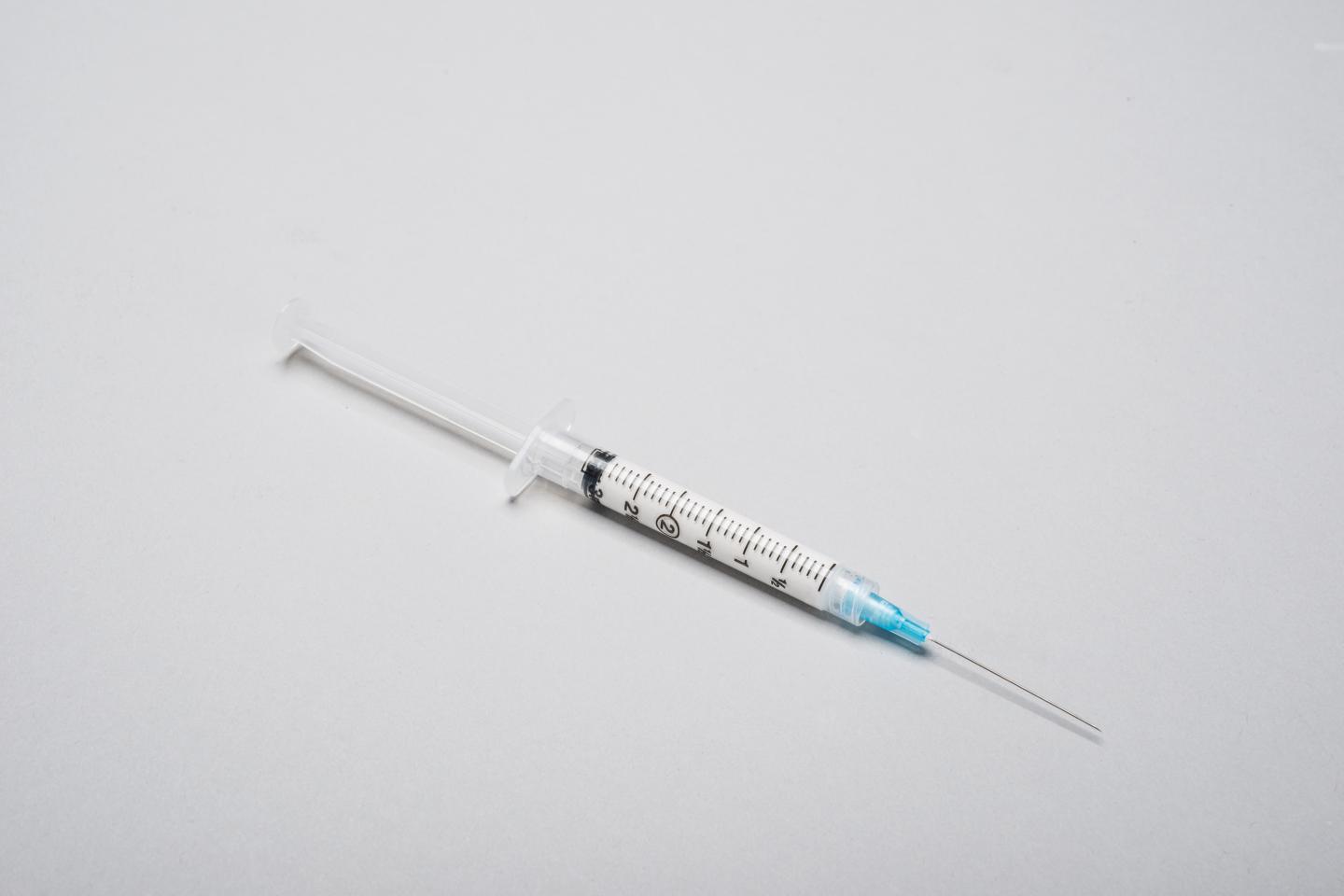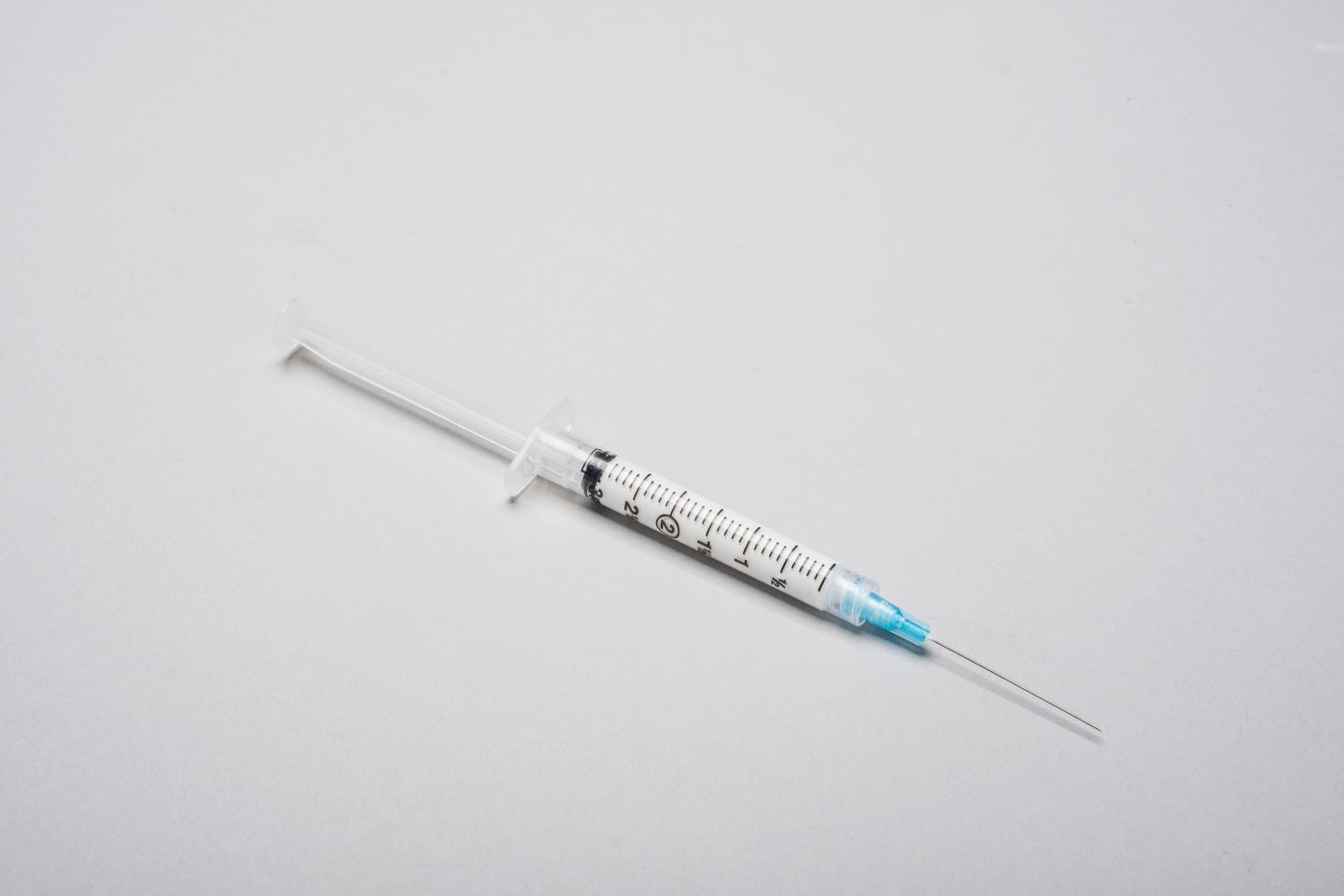
Credit: ViiV Healthcare
The first large-scale clinical trial of a long-acting injectable medication for HIV prevention in sexually active women has begun. The study in southern and eastern Africa will examine whether a long-acting form of the investigational anti-HIV drug cabotegravir injected once every eight weeks can safely protect women at risk for HIV infection. The only drug regimen currently licensed for HIV pre-exposure prophylaxis, or PrEP, is the anti-HIV medication Truvada taken daily as an oral tablet. The U.S. National Institutes of Health (NIH) is sponsoring the trial, and the NIH-funded HIV Prevention Trials Network (HPTN) is conducting the study, called HPTN 084.
"This new study, driven by African women scientists and volunteers, is testing the efficacy of a new HIV prevention tool for women who need more options for protection," said Anthony S. Fauci, M.D., director of the National Institute of Allergy and Infectious Diseases (NIAID), part of NIH. "Taking a daily pill can be challenging for some people. For some women, a long-acting injectable form of protection may be an easier, more desirable and discreet alternative."
Women accounted for 58 percent of new HIV infections among adults in southern and eastern Africa in 2016, so protecting them from acquiring the virus is essential to controlling the HIV epidemic. Current data suggest that women who use oral Truvada for HIV prevention may need to take it every day, without fail, to achieve and maintain drug concentrations high enough to provide protection. Truvada consists of two anti-HIV drugs, emtricitabine and tenofovir disoproxil fumarate.
"Injectable cabotegravir has the potential to give sexually active women a choice of biomedical HIV prevention tools for the first time–somewhat similar to the choices available to women for contraception," said Sinead Delany-Moretlwe, M.B.B.Ch., Ph.D., the HPTN 084 protocol chair. "Current HIV prevention tools can be especially difficult for women to control or negotiate with a partner. An effective, long-acting injectable drug would allow a woman to discreetly protect herself from HIV during sex." Dr. Delany-Moretlwe is associate professor and director of research at the Wits Reproductive Health and HIV Institute at the University of the Witwatersrand in Johannesburg.
NIAID is sponsoring the Phase 3 clinical trial and co-funding it in a unique partnership with ViiV Healthcare and the Bill & Melinda Gates Foundation. ViiV Healthcare and Gilead Sciences Inc. are providing the study medications. The new trial complements HPTN 083, an ongoing NIH study launched in 2016 of long-acting injectable cabotegravir for HIV prevention in men who have sex with men and transgender women who have sex with men.
"HPTN 084 also will examine how women experience long-acting injectable cabotegravir–whether they find it desirable and usable," said Mina Hosseinipour, M.D., M.P.H., the HPTN 084 protocol co-chair. "Understanding what types of HIV prevention fit best in women's lives will help further refine HIV prevention research, delivering tools that are ultimately safe, effective and desired." Dr. Hosseinipour is professor of medicine at the UNC School of Medicine in Chapel Hill, North Carolina, and scientific director of UNC Project-Malawi in Lilongwe.
The trial will enroll approximately 3,200 sexually active women aged 18 to 45 years at 20 sites in seven countries in southern and eastern Africa. The women are randomly assigned to either the cabotegravir group or the Truvada group. Neither the participants nor the study team will know who is in which group until the end of the trial.
Participants will be in the study for an average of 3.6 years. During the first five weeks after enrollment, they will receive two daily oral tablets: either cabotegravir or Truvada, and a placebo pill. Beginning in the sixth week, participants in the cabotegravir group will receive injections of cabotegravir and placebo tablets to be taken orally daily, while participants in the Truvada group will receive placebo injections and Truvada tablets to be taken orally daily. Injections will be administered by study staff. The first two injections will be four weeks apart, then once every eight weeks for an average of 2.6 years. After completing the injections, all participants will be offered 48 weeks of PrEP with daily oral Truvada. Subsequently, all participants will be transitioned to locally available HIV prevention services for PrEP, as available. Study results are expected in 2022.
HPTN 084 study participants will receive HIV prevention counseling, condoms and lubricant, as well as counseling to encourage and support adherence to the daily pill. Participants will be tested for sexually transmitted infections (STIs) throughout the trial and referred for appropriate treatment if an STI is diagnosed. Participants will be tested for HIV at least every eight weeks, and those who become HIV-infected during the trial will stop receiving the study products and be referred to local medical providers for appropriate HIV care and treatment.
###
For more information about HPTN 084, please see Questions and Answers: The HPTN 084 HIV Prevention Study below, and visit ClinicalTrials.gov under study identifier NCT03164564.
NIAID conducts and supports research–at NIH, throughout the United States, and worldwide–to study the causes of infectious and immune-mediated diseases, and to develop better means of preventing, diagnosing and treating these illnesses. News releases, fact sheets and other NIAID-related materials are available on the NIAID website .
About the National Institutes of Health (NIH): NIH, the nation's medical research agency, includes 27 Institutes and Centers and is a component of the U.S. Department of Health and Human Services. NIH is the primary federal agency conducting and supporting basic, clinical, and translational medical research, and is investigating the causes, treatments, and cures for both common and rare diseases. For more information about NIH and its programs, visit http://www.nih.gov.
NIH…Turning Discovery Into Health®
Media Contact
Laura S. Leifman
[email protected]
301-402-1663
@NIAIDNews
http://www.niaid.nih.gov





